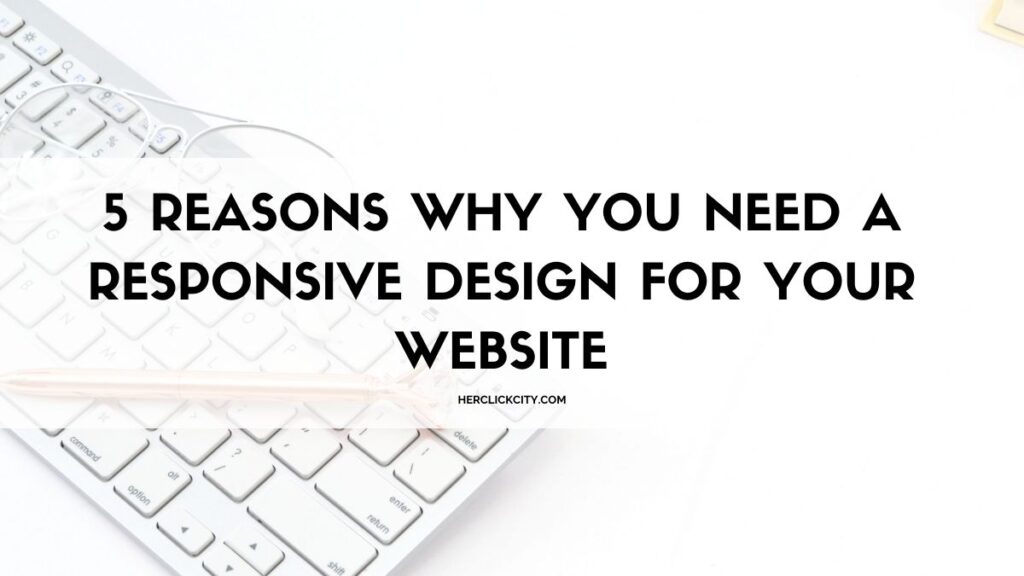In the past, websites were only accessible from a desktop computer. Then everyone switched to laptops because they were portable. Today, almost everyone has a cell phone with internet browsing capabilities. Is your website optimized to fit the device it’s viewed on? If not, here are a few reasons why it’s crucial to have a mobile responsive website design.
What is responsive design?
Have you ever visited a website via a smartphone and had to do acrobatics to view the page? Maybe you’ve turned it sideways to see the text on a screen, or constantly zoomed in on the page with your fingers to see all the details. Maybe you even had to continually scroll from left to right to read a single sentence. This is definitely frustrating.
Responsive design allows you to code any website to automatically adapt to the device used to view it. Whether it’s a tablet, a large smartphone, a small smartphone, a laptop, or a desktop computer, everyone sees the page in the optimized form for their device. Sounds great, doesn’t it? So why isn’t everyone taking advantage of it?
Five reasons to implement responsive design
Updating your website with responsive design tools has several positive effects.
1. Higher conversion rates
People don’t sit still, and neither do their devices. Most times, if someone is looking at products on your website, they want an immediate response. They might be comparing the price with what they see on other stores, or trying to make a purchase. A mobile-friendly website allows them to click a few buttons and order the product right away, rather than waiting till they can access a desktop computer.
2. Improved search engine rankings
Websites with responsive designs tend to rank higher on Google and other search engines. When your website is optimized for viewing on different devices, it’s easier for your viewers and the search bots. It’s also easier for you to manage a responsive website than using a separate mobile website.
3. Improved user experience
A responsive design shows your users that you are attentive to their needs. For someone who uses a mobile device 90% of the time, this makes a big difference. They can order dinner, make appointments, book a hotel reservation and even buy a product, all from their phone with responsive websites. When users feel valued and have a pleasant experience, they come back.
4. Flexibility
Your website can be adapted to multiple viewing devices. As an added value, you can add different content for viewing on each device. Your content expands to fill the space on each device, while the main content and layout remain the same on all devices for a seamless experience.
5. Less work for you
Using a responsive design from the start allows you to focus on the most important aspects of your website and present them to users on a smaller platform. Afterwards, it is easier to add content for larger devices.
Is your website still designed only for desktop use? Maybe it’s time to switch to a responsive design.

